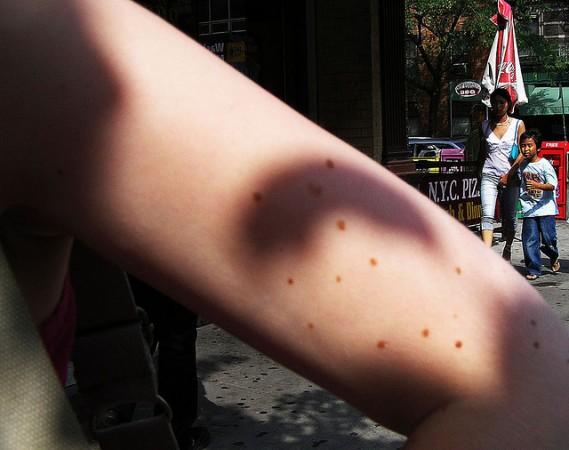
Possessing a large number of moles or cutaneous nevi can increase the risk of breast cancer in women, a new study claims.
Moles are small brownish spots found on the skin. They are formed when melanocytes, the pigment cells that give skin its colour, cluster together.
Researchers from Unites States (Indiana University and Harvard University) and France (INSERM) based their findings on two large studies - the Nurses' Health Study and E3N Teachers' Study Cohort conducted in the US and France.
The first one included 24 years' data on 74,523 female nurses in the US and the second one provided details of 89,902 women in France for a period of 18 years.
As part of their investigation, researchers asked women in the Nurses' Health Study to report the number moles bigger than 3mm on their left arm. Women with 15 or more moles were found at 35 percent higher risk of developing the deadly disease, compared to women without any moles.
Similarly, in the second study, researchers divided women into different groups, according to the number of moles they possessed, from no moles to very many moles. Women in the very many moles groups were found at 13 percent higher risk of breast cancer than women without any moles.
However, researchers said that their study does not suggest moles caused breast cancer, but their appearance may be linked to oestrogen, the sex hormone levels involved in breast cancer development.
There exists solid evidence to prove the link between oestrogen and moles, according to WedMD. Oestrogen has long been found to fuel mole growth, and moles grow bigger during pregnancy, a period when the hormone levels reach its peak.
"They could be a marker of lifetime exposure to estrogen," Barbara Fuhrman, an assistant professor at the University of Arkansas for Medical Sciences in Little Rock, told WebMD.
However, researchers told women with more moles not to get panic as the subject needs more research.
"It should really not panic women who have a lot of [moles] since these are very new findings. The association is very modest," Marina Kvaskoff from INSERM told TIME. "We are noticing this link, and we hope that it will generate more knowledge. If it is confirmed with other research, it could become a risk marker for breast cancer or other hormonal conditions, but it's too soon to be associated with a breast cancer diagnosis. We hope this will generate more research."
Findings of the study have been reported in PLOS Medicine.
Several studies in the past have linked moles to skin cancer melanoma - a cancer that starts in the cells that produce the melanin pigment. Melanoma is normally identified through visible changes in size or colour of a mole.

















